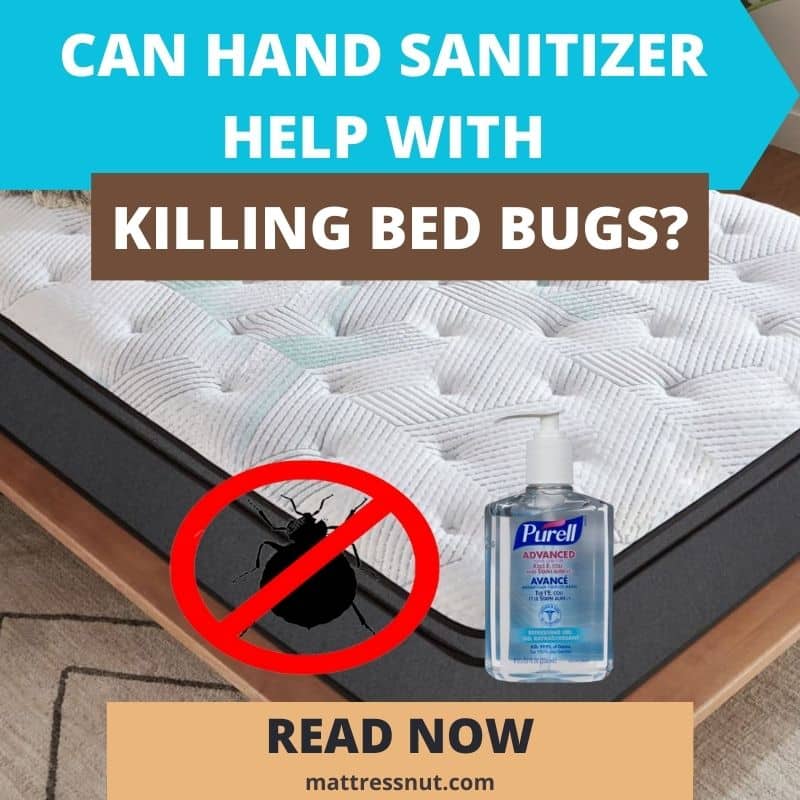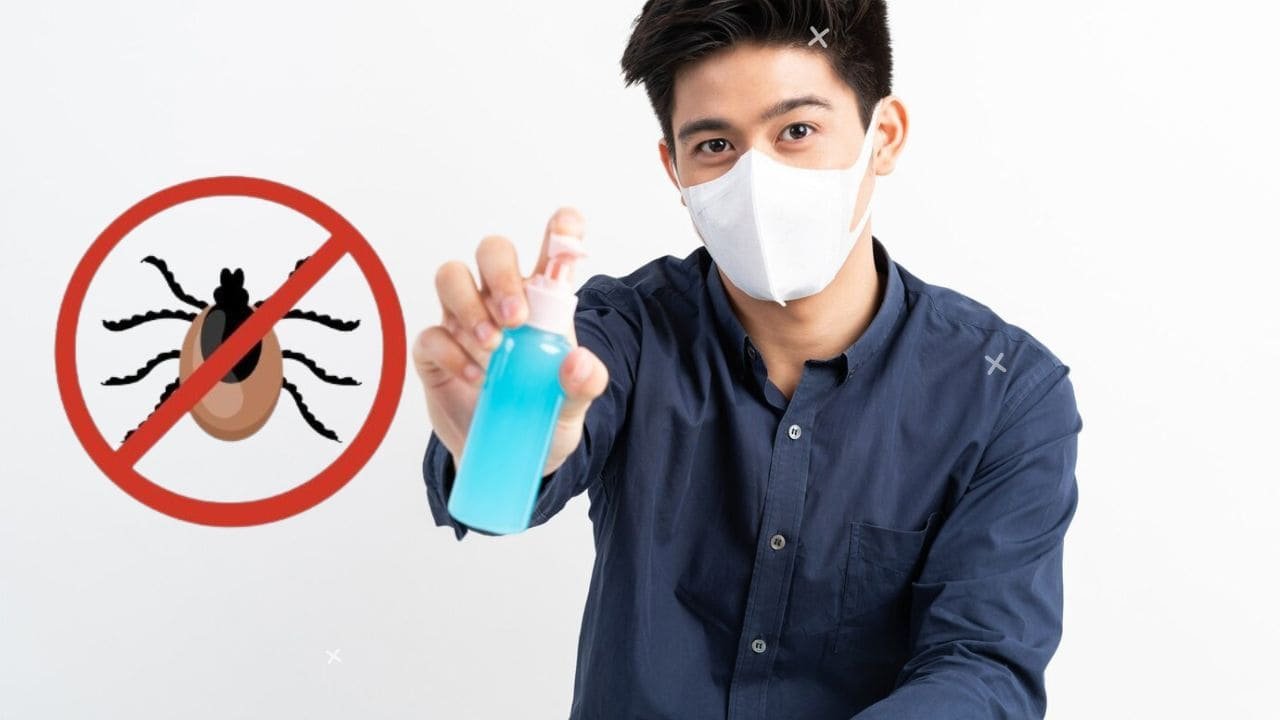So, you're probably here because bed bugs have turned your life into a nightmare and you're wondering if that handy-dandy hand sanitizer in your pocket can actually save the day. Let's dive right into it—can hand sanitizer really kill bed bugs? Spoiler alert: the answer isn't as simple as you might think. But don’t worry, we’re about to break it down for you in a way that’s easy to understand and totally actionable.
Bed bugs are sneaky little creatures that can make even the cleanest homes feel like a horror movie set. They’re resilient, reproduce quickly, and can survive for months without feeding. And let’s be honest, nobody wants to deal with them. That’s why people are constantly looking for quick fixes, like using household items such as hand sanitizer. But does it actually work?
In this article, we’ll explore whether hand sanitizer can kill bed bugs, what science says about it, and whether it’s a viable solution for your pest problem. Plus, we’ll give you some practical tips to help you tackle those pesky critters once and for all. Let’s get started!
Read also:Robert Low The Mastermind Behind The Scenes You Need To Know
Table of Contents:
- Introduction
- Can Hand Sanitizer Kill Bed Bugs?
- How Hand Sanitizer Works
- The Effectiveness of Hand Sanitizer on Bed Bugs
- What Science Says
- Alternatives to Hand Sanitizer
- Preventing Bed Bugs
- Common Myths About Bed Bugs
- Practical Tips for Dealing with Bed Bugs
- Conclusion
Can Hand Sanitizer Kill Bed Bugs?
Alright, let’s cut to the chase. Hand sanitizer is designed to kill germs and bacteria on your hands, not exterminate insects. But wait, before you dismiss it completely, there’s a bit more to the story. Some people swear by using hand sanitizer as a DIY bed bug solution, but does it actually work? Let’s take a closer look.
What Makes People Think Hand Sanitizer Can Kill Bed Bugs?
The idea that hand sanitizer might kill bed bugs stems from its active ingredient—alcohol. Most hand sanitizers contain around 60-70% alcohol, which is known to be effective against certain types of pests. However, bed bugs are a whole different ball game. They have tough exoskeletons and can resist many common household chemicals.
That being said, some users claim that applying hand sanitizer directly onto bed bugs can cause them to dehydrate and die. But here’s the catch—it’s not a guaranteed solution, and it certainly won’t eliminate an entire infestation. Think of it more like a temporary fix rather than a long-term solution.
How Hand Sanitizer Works
Hand sanitizers are formulated to kill germs and bacteria by breaking down their cell membranes. The alcohol in hand sanitizer evaporates quickly, leaving your hands feeling clean and refreshed. But when it comes to bed bugs, the story changes a bit.
Bed bugs have a protective outer layer called the cuticle, which makes them resistant to many chemicals. While alcohol might penetrate this layer and cause some damage, it’s unlikely to completely eliminate the bug. Plus, bed bugs are masters of survival—they can hide in tiny cracks and crevices, making it nearly impossible to reach them all with just a squirt of hand sanitizer.
Read also:Leila Santiese The Rising Star Making Waves In The Entertainment Industry
The Effectiveness of Hand Sanitizer on Bed Bugs
So, how effective is hand sanitizer at killing bed bugs? To be honest, it’s not very effective. While it might kill a few bugs on contact, it won’t address the root of the problem. Bed bugs reproduce rapidly, and one or two dead bugs won’t make a dent in a full-blown infestation.
Why Hand Sanitizer Isn’t the Best Option
- It only works on direct contact, meaning you have to physically touch each bug.
- It doesn’t penetrate deep into cracks and crevices where bed bugs hide.
- It’s not designed to kill insects, so its effectiveness is limited.
Think of it this way: using hand sanitizer to kill bed bugs is like trying to put out a forest fire with a garden hose. It might help a little, but it’s not going to solve the problem in the long run.
What Science Says
Now, let’s talk about what the experts have to say. According to a study published in the Journal of Economic Entomology, alcohol-based products like hand sanitizer can kill bed bugs on contact. However, the study also notes that these products are not effective at eliminating entire infestations.
Dr. Stephen Kells, a professor of entomology at the University of Minnesota, explains that while alcohol can kill bed bugs, it’s not a practical solution for large-scale infestations. “You’d have to apply it directly to every single bug, which is nearly impossible,” he says. “Plus, bed bugs are experts at hiding, so you’d never be able to reach them all.”
Alternatives to Hand Sanitizer
If hand sanitizer isn’t the best solution, what is? Luckily, there are plenty of effective methods for getting rid of bed bugs. Here are a few alternatives you might want to consider:
1. Heat Treatment
Heat is one of the most effective ways to kill bed bugs. Professional heat treatments can raise the temperature of your home to levels that are lethal to bed bugs, without harming your belongings. This method is safe, effective, and can eliminate an infestation in as little as a few hours.
2. Insect Growth Regulators
Insect growth regulators (IGRs) are chemicals that disrupt the life cycle of bed bugs, preventing them from reproducing. While they won’t kill adult bugs immediately, they can help control infestations over time.
3. Encasements
Protective encasements for mattresses and box springs can trap bed bugs inside, preventing them from feeding and reproducing. This is a great preventive measure, especially if you’re traveling or moving into a new home.
Preventing Bed Bugs
The best way to deal with bed bugs is to prevent them from entering your home in the first place. Here are a few tips to help you keep those pesky critters at bay:
- Inspect secondhand furniture thoroughly before bringing it into your home.
- Use protective encasements for your mattress and box spring.
- Wash and dry your clothes on high heat after traveling.
- Vacuum your home regularly, paying special attention to cracks and crevices.
Remember, prevention is key when it comes to bed bugs. Once they’re in your home, getting rid of them can be a long and difficult process.
Common Myths About Bed Bugs
There are a lot of misconceptions about bed bugs floating around the internet. Let’s bust a few of them:
Myth #1: Bed Bugs Only Live in Dirty Homes
False! Bed bugs don’t care how clean your home is. They’re attracted to warmth and carbon dioxide, which means they can thrive in even the cleanest environments.
Myth #2: Bed Bugs Only Come Out at Night
While bed bugs are most active at night, they can also feed during the day if they’re hungry enough. Don’t let their name fool you—these bugs aren’t strictly nocturnal.
Myth #3: Hand Sanitizer Can Eliminate Infestations
As we’ve already discussed, hand sanitizer might kill a few bugs on contact, but it’s not a practical solution for large infestations.
Practical Tips for Dealing with Bed Bugs
If you’re dealing with a bed bug infestation, here are a few practical tips to help you get through it:
- Hire a professional exterminator to assess the situation and recommend a treatment plan.
- Wash all your bedding, clothing, and curtains in hot water and dry them on high heat.
- Seal up cracks and crevices in your walls and furniture to prevent bed bugs from hiding.
- Monitor your home regularly for signs of bed bugs, such as bites, bloodstains, or molted skins.
Dealing with bed bugs can be stressful, but with the right approach, you can get rid of them for good.
Conclusion
In conclusion, while hand sanitizer might kill a few bed bugs on contact, it’s not a practical solution for eliminating an entire infestation. If you’re dealing with bed bugs, your best bet is to consult a professional exterminator and explore other proven methods, like heat treatment and insect growth regulators.
Remember, prevention is key when it comes to bed bugs. By taking proactive steps to protect your home, you can avoid the hassle and expense of dealing with an infestation. And if you do find yourself in a sticky situation, don’t hesitate to reach out for help. You’ve got this!
Got any questions or tips of your own? Drop a comment below and let’s chat. And if you found this article helpful, don’t forget to share it with your friends and family. Let’s spread the word about bed bug prevention and solutions!



